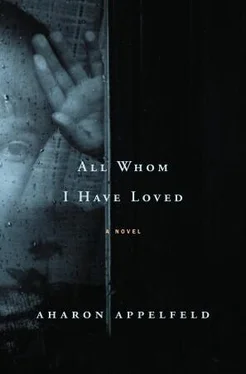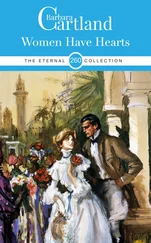Victor is planning a large exhibition of Father's paintings for the spring, to be held at the Raphael, a well-known gallery that is currently being renovated. “It's going to be quite an occasion,” says Victor, his childlike eyes glowing. He has boundless faith in Father. I'm afraid of this faith, and I remember our last day in Czernowitz: Father tearing up sketches and paintings and shoving them into the gaping mouth of the stove. The landlord implores him, “Sir, don't destroy what you've made,” but Father pays no attention to him and continues to rip up papers and canvases, feeding them to the fire with a fearsome glee.
One day Victor arrives at our house with a woman. She is tall and blond, and she has a smiling face. Father goes to greet them, and Victor introduces her as Suzy. Suzy is to come to us every day from nine to three to be Father's model.
“What is a model?” I ask Father at lunch.
“A woman whom one paints,” Father replies, without raising his head from the plate.
Suzy appears the following day and enters the studio. I stand by the door and eavesdrop. “I'm twenty-nine and I've been married, but it didn't work out,” Suzy tells Father. “Since I got divorced, I've modeled for two painters, and from now on I'll be happy to serve you, too.”
Father asks some questions, and Suzy answers and laughs. Then they fall silent, and the only thing to be heard is the scratching of charcoal on the paper.
I go into the kitchen and sadness comes over me. It seems as though Father is also about to be taken from me, and I will be put into an orphanage. I decide that I will run away to Halina's village and await her resurrection there.
At three o'clock the door of the studio opens and Suzy comes out without looking at me. In the evening Father complains to Victor that it's hard for him to draw a woman who is also modeling for other artists. Victor asks why, and Father gives an example, and everyone at the café laughs. I understand nothing of what he has said, and yet I feel relieved.
This evening Father is in a good mood. He tells jokes and imitates people, and he narrates a long story about the famous art critic who at first had praised his work and then retracted what he'd said. Only a few days earlier Father had been mute, quite unable to produce a sound. Now he not only converses and expounds, but he even recites poetry and sings. In my heart, I pray that the demons that beset him in Czernowitz will not overcome him here. When the demons engulf him, his mood plummets, and depression darkens his brow and seals his mouth.
Suddenly Victor sinks to his knees and announces, “We will change the order of priorities.”
“What priorities?” asks Father.
“Artists should be at the top of the ladder.”
Father also sinks to his knees, and he embraces Victor; everyone laughs.
Victor has brought a new model to the house — a small and slender woman called Tina. Her expression is one of naïve wonder. Her lips tremble, and it's clear that speech doesn't come easily to her. I see at once that Father likes her.
I stare at Victor's round face. Sometimes he seems like a practical man whose actions are reflected in his every movement, and sometimes he seems so distracted that if truth be told, he doesn't know what he's doing. In the café, he eats sandwich after sandwich, and when it's almost midnight he says, “We have to go home; I've got a long day ahead of me tomorrow.” It's not hard to guess that there's no woman waiting for him, and no hot dinner, and it's doubtful that he has changed his shirt in the past month. But he takes good care of us: every time he comes, he brings us vegetables and fruit, and a chocolate bar or box of candies for me.
Father works from morning till night. Through the door I hear the scratching of charcoal on the paper. Sometimes it sounds like he's trying to remove a stubborn stain from the paper. When Father paints I feel his efforts, and sweat covers my entire body. To share in his labors, I doodle on a pad and invent math problems.
Last night I dreamed of Mother. She was tall and full of gaiety, and her hair spilled over her shoulders as it had during our summer vacation. But her eyes were listless. She spoke of the orphanage in which she had grown up. She had already told me something about it. Her parents died very young, and the Jewish orphanage had been her home. Now it could clearly be seen in her eyes that she was an orphan: they were sunk into their sockets, and the more I gazed into them, the more sunken they appeared. I woke up frightened; Father was in a deep sleep and did not hear me.
I remembered how run-down the orphanage in Storozynetz had looked, and pity filled my heart. Once I had asked Mother if she remembered her parents. “Nothing now,” she said, and shrugged. Her words surprised me. Then I swore to myself that I would store in my memory all the people and the sights that have passed before my eyes, so when the day came I would be able to say: “Of course I remember. How could I forget?”
I get a letter from Mother today. Father doesn't ask me what she writes, but I tell him anyway. Mother wants to visit me at Christmas. Not a word about herself. I feel that even these few sentences did not come easily. I fold the letter and put it inside the writing pad.
Father is painting feverishly. The little woman appears each morning and emerges from the studio at three o'clock. Father's face has changed over the last few weeks, and in the evening, when he sits close to me, I feel the tension that simmers within him. I'm afraid of this tension and of his restrained movements. But even more than that, I'm afraid of the demons that surround him. The demons that were invisible in Czernowitz jump around here in every corner. Sometimes Father makes an abrupt gesture to drive them off, but they don't go far. I see them next to the sofa and beside the bed. They are very small beings in the shape of people. On the whole they are lively, but occasionally they fall prey to some kind of distress, and they shrivel up and disappear.
Yesterday Father let me come into the studio and showed me his paintings: demons — demons of every hue and kind. They were larger on the canvases than they were in our rooms. They had transparent human faces with expressions of mocking malice. The female demons are naked and rub up against the male demons provocatively.
“How are they?” asked Father.
I didn't know what to say. “Nice,” I replied.
“It's not nice,” said Father.
“What should I say?”
“You can also say nothing. You do recognize them?”
“I can see them clearly.”
“Well, there you are!” he said, pleased that he had managed to explain something complicated to me. Suddenly I remembered that in Czernowitz Father had beaten up one of the critics who had called him “a prophet of doom who ought to be crucified.”
That was the critic who brought the lawsuit against Father. The suit dragged through the courts for an entire year. Once, Father took me to the court, and I saw the lawyers for the defense and the prosecution wearing black gowns. Father was defended by a Jewish lawyer named Kurt Schnitzler. He would slap Father on the shoulder and say, “Don't worry, it will all work out.”
Father gave the lawyer part of his salary every month, which completely drained his resources. Then, at the height of the litigation, the malevolent critic passed away. Father celebrated his demise with a drinking spree.
Father once told me, “As long as I breathe, I'll be beating up anti-Semites and art critics.” But now he faces a different struggle. Sometimes it seems that he's painting the demons so as to expose their wickedness and their wretchedness, and sometimes it seems that he revels in their hidden wisdom. Father is a secretive person, revealing only part of his inner self, but there is a harsh honesty in everything he does.
Читать дальше












